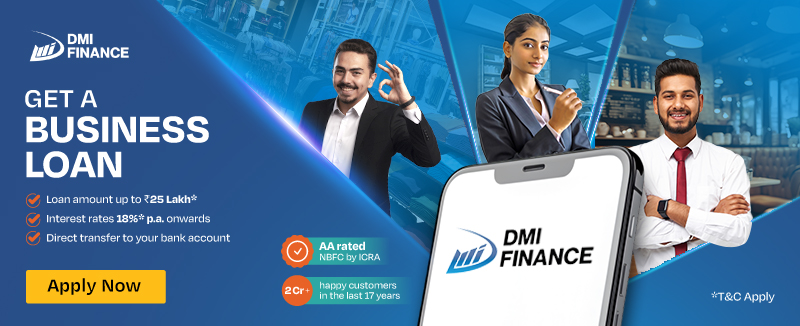- Published on: 18 Nov 2025
- Last updated on: 28 Jan 2026
- Post Views: 22739


The Goods and Services Tax (GST) has significantly reshaped the way education services are taxed in India. As of 2026, the classification of education under GST continues to spark discussions, especially regarding which services are exempt and which attract tax. With evolving regulations and compliance requirements, it’s crucial for educational institutions, edtech platforms, and service providers to stay updated.
In this blog, we break down the latest GST rules for education services in India, including exemptions, applicable tax rates, and key updates relevant to both traditional and digital education formats. Whether you’re a school administrator, an online course provider, or simply a curious taxpayer, this guide will help you navigate the GST landscape in the education sector with clarity.

Under the Notification No. 12/2017- Central Tax (Rate) of the GST regime, “education services” refer to services offered by the formal or vocational educational institutions. According to the GST laws, the following qualify as education services:
In other words, schools, colleges, and government-certified vocational training institutes fall under the category of educational institutions. Coaching centres, private tutors, or training academies that enhance students’ preparation for exams or skills acquisition but do not award any government-recognised degree are not considered educational institutions according to GST.
Therefore, the extent of GST on education services is determined by the kind of institution and the nature of the services provided.
Here is a list of education services that are exempted and the ones that are not:
Exempted Educational Services
Taxable Educational Services
Educational services for formal schooling are exempted, and all other education and training-related activities are considered taxable.

Here is the rate structure for GST on private coaching classes and education services:
| Type of Education Service | Examples/Description | GST Rate |
| Pre-school to Higher Secondary Education | Colleges, universities, or institutions that issue legally recognised degrees/diplomas | Exempt (0%) |
| Education leading to a recognised qualification | Colleges, universities, or institutions that issue legally-recognised degrees/diplomas | Exempt (0%) |
| Vocational/Skill Development Training | NSDC-approved courses, Sector Skill Councils or government-approved courses (e.g. PMKVY) | Exempt (0%) |
| Educational Institutions Services | Transportation, catering (including mid-day meals), security, cleaning, admission/exam services | Exempt (0%) |
| Private Coaching or Tuition Classes | Non-recognised coaching centres (e.g. IIT-JEE, NEET, CA, UPSC prep) | 18% |
| Online Learning/EdTech platforms | Online courses that do not result in any recognised qualification | 18% |
| Corporate Training and Professional Courses | Training programmes for employees, management or professionals | 18% |
| Education Consultancy Services | Admission consulting and career guidance | 18% |
| Accommodation & Mess Services by Institutions | Hostels or food services by schools/colleges | Exempt (0) if in institution |
| Accommodation & Mess Services by Institutions | Hostels or food services by schools/colleges | 18% if outsourced |
| Renting Premises for Educational Use | When leased to renowned educational institutions | Exempt (0%) |
As per the GST regime, educational institutions can avail Input Tax Credit (ITC) on the taxes paid for the purchase of goods and services that are used in the provision of taxable supplies.
1. Institutions under the Exempt Category
Schools and recognised educational institutions that offer exempted services cannot claim ITC. As they are not charging GST on their output services, they are not entitled to credit for the tax paid on their inputs, like stationery, uniforms, or maintenance.
2. Institutions under the Taxable Category
Colleges, universities, and coaching institutes that levy GST are eligible to claim ITC on their inputs. This allows them to lower their total tax burden. As an illustration, a coaching centre that pays GST on rent, printing, and other services can avail of ITC to discharge its tax liability.

There are many platforms and institutions that now offer online classes. These include live lectures, pre-recorded sessions, test series, and doubt-solving programs. However, the GST law considers these services as taxable.
Since online education platforms do not qualify as formal educational institutions, the council imposes 18% GST on online classes. Similarly, a JEE, NEET, and UPSC exam preparation coaching centre is a taxable entity. The same condition applies to GST on private coaching classes if they are conducted in-person or online.
| Type of Coaching Service | Examples | GST |
| School or college tuition under a renowned board | CBSE, ICSE, State Board institutions | Exempt (0%) |
| Private coaching for exams | IIT-JEE, NEET, UPSC, CA, SSC, CAT | 18% |
| Corporate or professional training programmes | Soft skills, HR, finance, leadership workshops | 18% |
| Recreational or hobby classes | Art, dance, music (commercial) | 18% |
Suppose a private coaching institute charges ₹50,000 for a class. An additional 18% GST is added, thereby making the total ₹59,000. The student is liable to pay the tax, and the institution deposits it with the government.
Educational institutions must know the time and the conditions under which they have to register for GST.
When Registration is Not Required
An institution that only offers exempt education services (e.g., a school providing pre-primary to higher secondary education) does not require GST registration. Since the services are non-taxable, there is no GST liability.
When Registration is Required
The institution that provides a mixture of both exempt and taxable services, e.g., a college offering degree courses as well as short-term paid certification courses, should register if its total turnover is more than ₹20 lakh in a financial year. A private coaching centre, online education platform, or training provider should also get a GST registration if their turnover exceeds ₹20 lakh (₹10 lakh in special category states). After obtaining a registration, you must:

GST has structured and made the tax system more transparent in the education sector. Although it is exempt from the core educational services, the Council imposes 18% GST on coaching classes and other commercial educational activities.
If you are running a coaching class, maintaining proper GST records makes you eligible for a business loan. The GST records serve as an income. Apply for a business loan with DMI Finance now to expand your coaching classes.
1. Can a coaching centre claim Input Tax Credit (ITC) on rent and utility bills under GST?
Yes, if the coaching centre is registered under GST and its services are taxable, it can claim ITC on rent, utilities, and other business expenses.
2. Is GST applicable to educational webinars or workshops conducted by teachers?
Yes, if the teacher charges fees for webinars or workshops, GST applies if their annual income exceeds the registration threshold.
3. Are online courses offered by foreign universities to Indian students taxable under GST?
Yes, these services are considered imports of online information and database access services (OIDAR) and attract GST.
4. Do NGOs offering free educational training need to register for GST?
No, if the NGO provides education free of cost and doesn’t engage in commercial training, it’s not required to register under GST.
5. Is GST applicable to school uniforms, books, and stationery sold by schools?
Books are exempt, but uniforms and non-academic stationery are taxable under GST.
6. How is GST handled when an educational institution offers both exempt and taxable courses?
In such cases, the institution must maintain separate records and pay GST only on taxable courses or services.
7. Are skill development courses offered by private firms without NSDC approval taxable?
Yes, these are treated as commercial education services and attract 18% GST.
8. Do government-run coaching programs or exam prep schemes attract GST?
No, if the program is directly conducted by the government and not outsourced, it is exempt from GST.
9. Is GST applicable to hostel or accommodation charges collected by schools or colleges?
If the accommodation is provided by a recognised educational institution to its students, it is exempt from GST.
10. What happens if a coaching centre fails to register under GST despite crossing the turnover limit?
It may face penalties, interest, and be required to pay the pending tax, along with backdated compliance filings.


